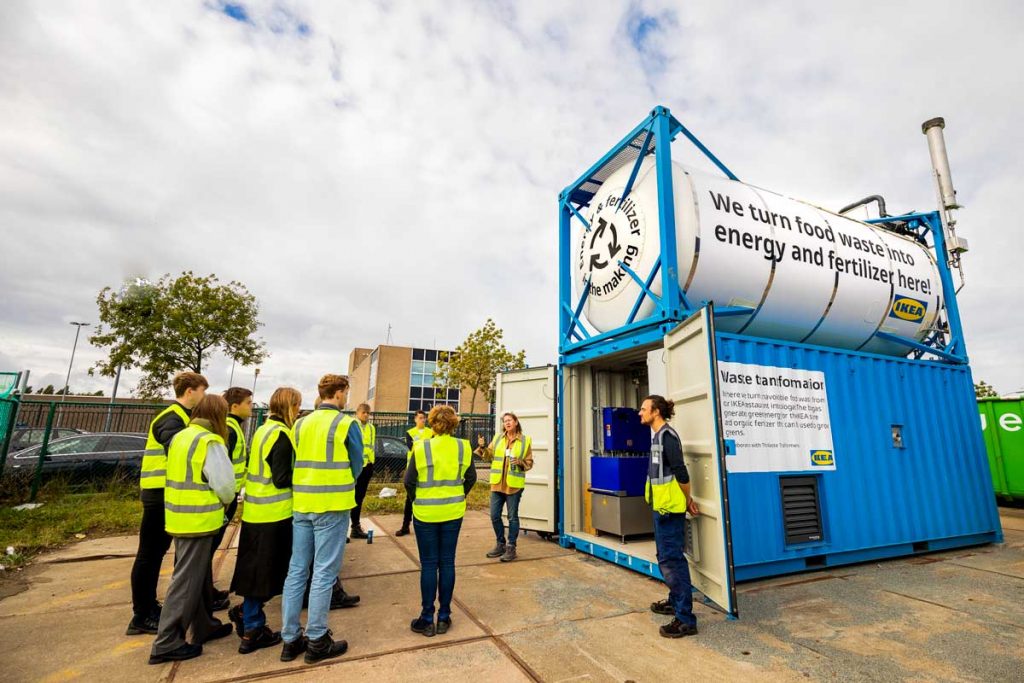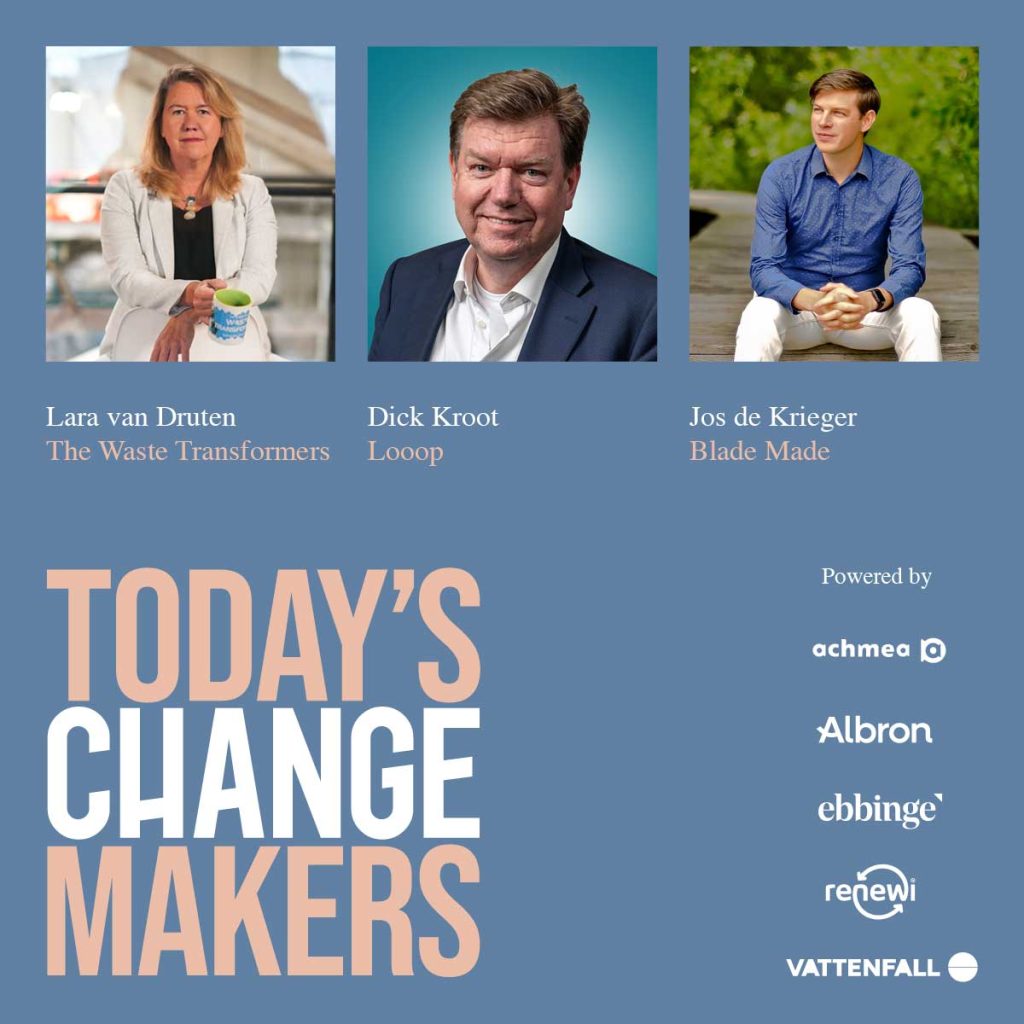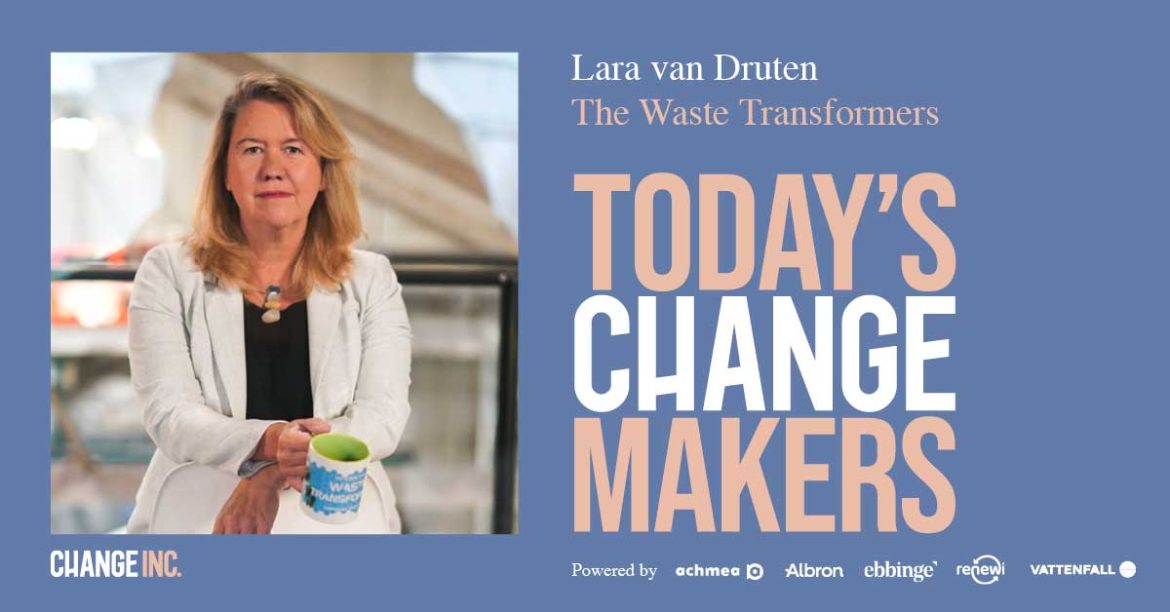This week the platform Change Inc. addresses the re-valuation of waste. Food waste, a tremendous global issue, causing when not treated properly global warming, increases food insecurity and higher food costs. In light of this week’s theme, Change Inc. interviewed our CEO Lara van Druten and asked her how our current waste system can become smarter?
The full interview can be read here in Dutch. For our English readers, we have translated the article into English below.
How to make our waste system smarter?
No system is as inefficient as our current waste processing. Why do we all let big polluting trucks drive around with our rubbish? Lara van Druten founded a company to do things differently: make something useful from waste, close to home.
The IKEA near Haarlem is the place for affordable furniture throughout North-Holland. What people probably don’t think about is that the Swedish balls and Gravlax from the restaurant can end up as waste. That waste does not go to the garbage dump, but is converted into something useful in the business park itself.
This IKEA has a Waste Transformer from The Waste Transformers at their restaurant. A container-sized Waste Transformer in which food waste is anaerobically digested to generate green energy and natural fertilizer. According to Lara van Druten, founder of The Waste Transformers, this is the future of food waste processing.
“I like to do things smartly and hate stupidity. When I look at the waste system in Western countries, I see a lot of inefficiency and a lot of problems. Food loss and food waste cause an awful lot of CO2 emissions, but nobody feels responsible. Because we have outsourced waste processing. This can be done differently.”
Van Druten and her team built a containerized anaerobic digester that converts all food waste, on-site. In a perfect world, the digester is part of a closed, ‘circular’ system. “Imagine: a restaurant produces food waste, which goes into the digester and supplies heat for a greenhouse, or ‘urban farm’, next to the restaurant. The plants can grow on the remains that remain after the digestion process. And the restaurant can use the vegetables from the greenhouse again.”
This is not only very elegant, it is also better for the environment. Research has shown that this type of small-scale digestion is 330 percent better in terms of emissions than a landfill, and 32 percent better than an incinerator. It even beats large-scale anaerobic digestion; this releases a third more CO2.
Goal in mind
The Waste Transformers are making great strides.

Lara van Druten elected as changemaker of the week
Not only at companies and restaurants, but also in countries in Africa. One of the locations is Sierra Leone in West Africa. For that project, Van Druten and her colleagues raised 3.9 million Euros from investor Climate Fund Managers. “We use this to build a number of installations around the capital Freetown. The idea is that this will become the blueprint for a decentralized food waste system for other African cities.” According to Van Druten, the system with garbage trucks is not efficient at all. Certainly not in Africa, where there are many remote places.
The business case for on-site anaerobic digestion can be achieved in several ways. “The revenue model differs from place to place. If electricity is expensive, that’s where you get your profit. If waste processing is expensive, you can save money there thanks to the digester. And sometimes the social aspect is what makes you money: you make people aware of waste and thus get less pollution in and around the Waste Transformer. And you create new jobs.”
What helped you best?
“Because you can use a Waste Transformer in different ways, I’m always looking for companies that see the potential. Valuable partners who show guts. Have a long-term vision and walk the path towards a better future with us. We need those kinds of brave companies.”
How do you run your business?
“My strength, and the strength of my team: we can make chocolate out of nothing. I like to see a blank slate, something that’s just an idea, and then work it out. With the company, we have now reached a phase in which a lot of attention is needed for structure and repeatable processes. In the long run, I would therefore not mind sitting in the back seat more and relying on the strength of others who have focus.”
Do you want to follow us on social media, give us a page like on Facebook, Twitter, LinkedIn and Instagram.
Curious how our installation works? Watch our short movie here.
Become a frontrunner in your industry

Hotels

Airports

Universities

Communities

More industries
Get in contact with us to learn more about the possibilities of using an installation on your site to generate value from waste.
> Return to other news

